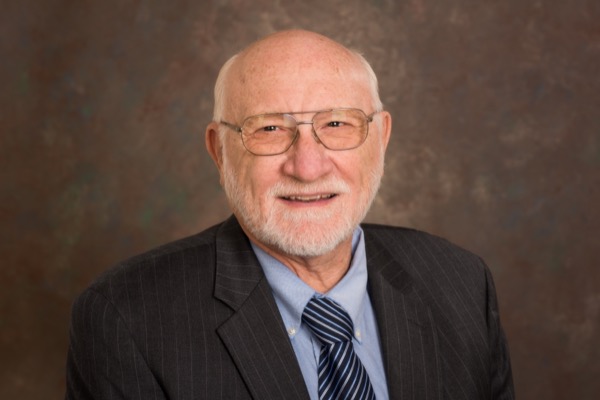
Alison Award
Cecil Dybowski receives UD's highest competitive faculty honor
1:37 p.m., May 18, 2015--Cecil Dybowski, professor of chemistry and biochemistry, has received the 2015 Francis Alison Faculty Award, the University of Delaware’s highest competitive faculty honor.
The award was established in 1978 by the Board of Trustees to recognize the faculty members who best demonstrate the combination of scholarship and teaching exemplified by the Rev. Francis Alison, founder of the institution that is now UD. The annual award also confers membership in the Francis Alison Society.
Honors Stories
National Medal of Science
Warren Award
Dybowski “epitomizes the qualities one looks for in an Alison Professor,” said Donald L. Sparks, S. Hallock du Pont Chair in Plant and Soil Sciences and chair of the Francis Alison Society. “He is a world-class researcher, an accomplished teacher and mentor and a faculty leader. He is most deserving of this prestigious award.”
A member of the faculty since 1976, Dybowski is internationally known for his work in nuclear magnetic resonance — a field that is “one of the most complex and at the same time the most informative techniques available to science, technology and medicine,” said Andrew Teplyakov, professor of chemistry and biochemistry, who nominated his colleague for the Alison Award.
For Dybowski, research and scholarship is just one aspect of a career in which he has always emphasized the importance of teaching, with both undergraduate and graduate students.
“My job is to educate students and make them think,” he said. “I don’t try to train students to be technicians. I want them to learn how to think and solve problems.
“As a faculty member, you look at your former students and ask: What have they done after they left here? If they’ve made the world better, then you’ve done your job, and that’s more important than winning awards.”
Still, Dybowski has won numerous awards throughout his career, including the Gold Medal of the Society for Applied Spectroscopy and the 2010 Eastern Analytical Symposium Award for Achievements in Magnetic Resonance. He is a fellow of the American Association for the Advancement of Science, the American Institute of Chemists and the Society for Applied Spectroscopy.
He has published about 200 scientific papers and, with colleagues, has delivered hundreds of presentations about his research at seminars, conferences and invited talks at academic institutions and industry groups. He has been associate editor for the journal Applied Spectroscopy and is currently an associate editor for the Encyclopedia of Analytical Chemistry.
In his role as a teacher, Dybowski has mentored 10 postdoctoral associates and visiting scientists and 26 graduate students and has worked with 34 undergraduates in his research program. His former students hold positions at universities and research laboratories around the world, at major companies and in government and nonprofit agencies.
In addition to teaching and scholarship, faculty members should be expected to serve – not only their institution but also the broader community, Dybowski said, describing the various roles as synergistic. Research informs his teaching, and teaching informs his research, he said, paraphrasing a favorite comment he once heard from a colleague.
“What strikes me most is the true dedication of Professor Dybowski to being a scholar in the highest possible interpretation of this word – both as a teacher and as a student of science,” Teplyakov said.
Dybowski earned his doctoral degree in chemical physics from the University of Texas at Austin and then served as a research fellow in chemical engineering at California Institute of Technology. He joined the UD faculty in 1976 as an assistant professor of chemistry.
Article by Ann Manser
Photo by Evan Krape








